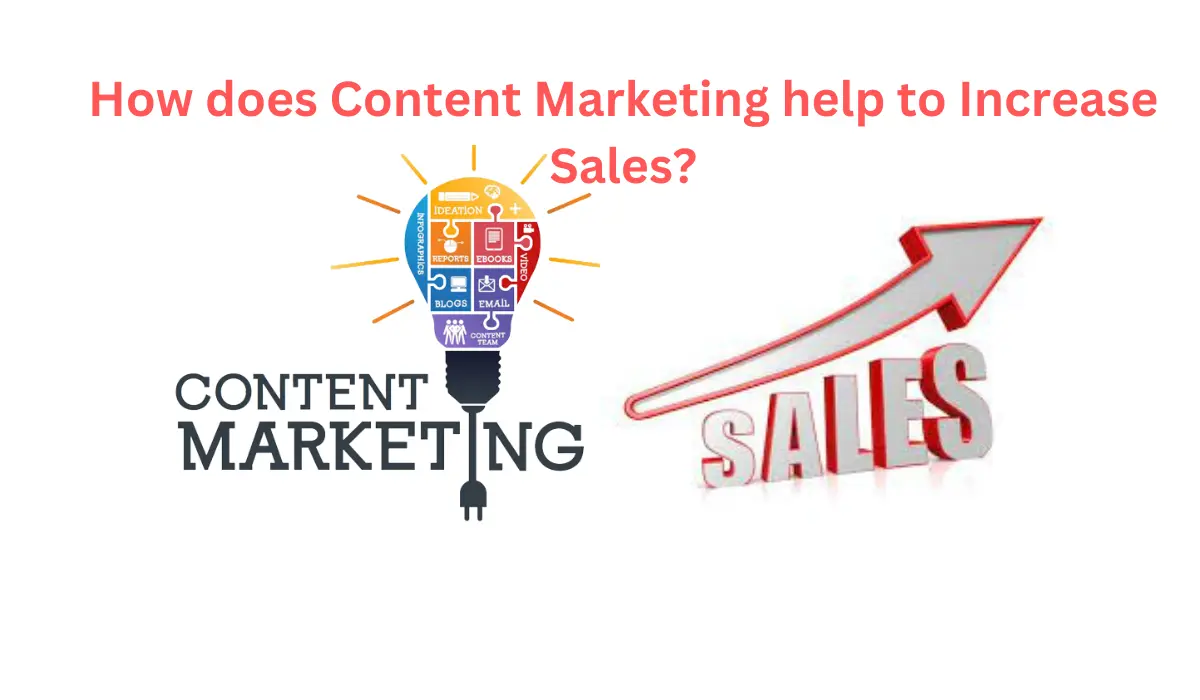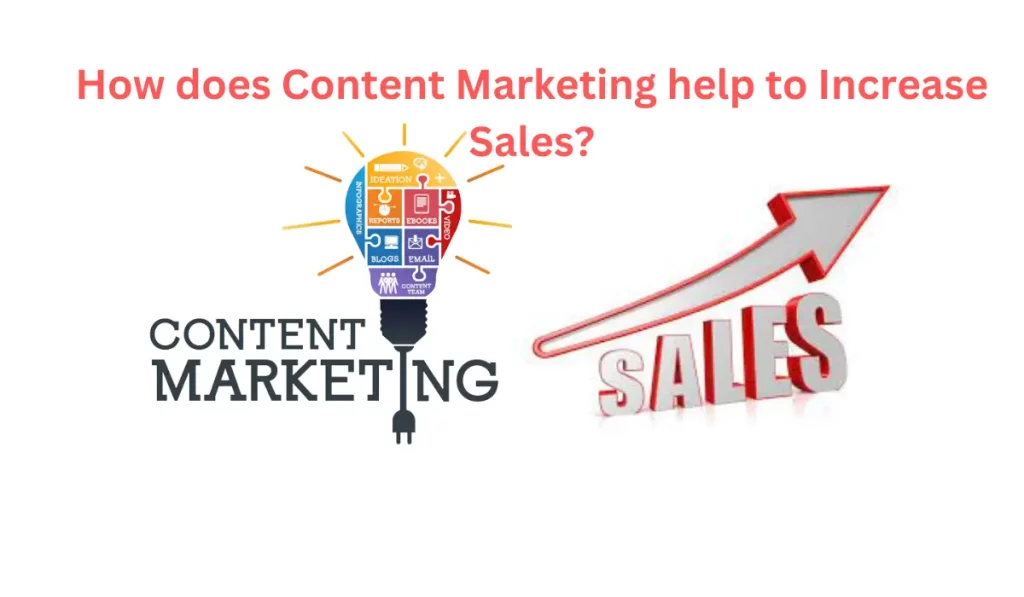Many content marketing experts say content marketing can drive sales. In this context, our focus is on how content marketing helps to increase sales.
Let’s dive into the deep
Content marketing is a strategic marketing approach focused on creating and distributing valuable, relevant, and consistent content to attract and retain a clearly defined audience — and, ultimately, to drive profitable customer action. The primary goal of content marketing is to provide value to the audience by offering information, entertainment, or inspiration that aligns with their interests and needs.
Key Aspects of Content Marketing:
Content marketing is a powerful strategy for building brand awareness, nurturing relationships with customers, and driving business growth in a way that is informative, non-intrusive, and valuable to the audience.
Audience-Centric Approach:
Content marketing revolves around understanding your target audience’s preferences, pain points, and interests. By creating content that resonates with them, you can build trust and credibility.
Content Creation:
This involves developing various types of content, such as articles, blog posts, videos, infographics, podcasts, whitepapers, case studies, and more. The content should be engaging, informative, and relevant to your audience.
Distribution Channels:
Once you’ve created content, it’s essential to distribute it through appropriate channels. This can include your website, blog, social media platforms, email newsletters, guest posting on other websites, and more.
SEO and Content Optimization:
Search engine optimization (SEO) plays a crucial role in content marketing. Optimizing your content for relevant keywords can help improve its visibility in search engine results, driving organic traffic to your website.
Building Authority and Thought Leadership:
Consistently producing high-quality content can position your brand as an authority in your industry. By sharing valuable insights, expertise, and thought leadership, you can establish trust and credibility with your audience.
Measuring and Analyzing Results:
To gauge the effectiveness of your content marketing efforts, it’s important to track key metrics such as website traffic, engagement, social shares, leads generated, and conversions. Analyzing these metrics can help you refine your strategy and optimize future content.
Adaptation and Evolution:
Content marketing is not static; it requires continuous adaptation and evolution based on changing trends, audience preferences, and market dynamics. Staying informed about industry developments and experimenting with new approaches is essential for long-term success.
How Content Marketing Helps to Increase Sales
Content marketing can play a critical role in increasing sales by attracting and engaging potential customers, nurturing leads, and building long-term relationships that drive repeat business.
Content marketing can significantly impact sales in several ways:
Building Brand Awareness:
By consistently creating valuable content that addresses the needs and interests of your target audience, you can increase brand visibility and recognition. When consumers encounter your brand repeatedly through engaging content, they are more likely to consider it when making purchasing decisions.
Establishing Trust and Credibility:
Providing informative and helpful content demonstrates your expertise and authority in your industry. When consumers perceive your brand as knowledgeable and trustworthy, they are more inclined to purchase from you rather than competitors.
Educating Prospects:
Content marketing allows you to educate potential customers about your products or services, their features, benefits, and how they can address specific pain points or challenges. Educated consumers are more likely to make informed purchasing decisions and feel confident in their choices.
Generating Leads:
High-quality content can attract leads by capturing the interest of individuals who are actively seeking information related to your industry or offerings. By offering valuable content gated behind lead capture forms, you can collect contact information and nurture these leads through targeted marketing campaigns.
Driving Traffic to Sales Channels:
Content marketing efforts, such as blog posts, social media posts, and videos, can drive traffic to your website or other sales channels where consumers can learn more about your products or services and make purchases.
Supporting the Sales Process:
Content can play a crucial role in guiding prospects through the sales funnel. By providing content that addresses common objections, showcases customer testimonials, or offers in-depth product demonstrations, you can help prospects overcome barriers to purchase and move closer to making a buying decision.
Encouraging Repeat Purchases and Customer Loyalty:
Content marketing isn’t just about acquiring new customers; it’s also about nurturing existing relationships. By providing ongoing value through content, such as educational resources, product tutorials, or exclusive offers, you can strengthen customer loyalty and encourage repeat purchases.
Measuring and Optimizing Performance:
Content marketing allows you to track key metrics such as website traffic, engagement, lead generation, and conversions. By analyzing these metrics, you can identify which content resonates most with your audience and optimize your strategy to maximize sales effectiveness over time.
Also Read
Tips to Create High-Quality Content for Generating Sales
Creating high-quality content that drives sales requires a strategic approach tailored to your target audience and business objectives. Here are some tips to help you create content that effectively and how content marketing helps to increase sales:
Understand Your Audience:
Research your target audience to understand their demographics, preferences, pain points, and buying behavior. Use this insight to create content that resonates with their needs and interests.
Focus on Value:
Provide valuable, informative, and relevant content that addresses your audience’s challenges, questions, and aspirations. Offer actionable advice, expert insights, and solutions to their problems.
Highlight Benefits and Solutions:
Clearly communicate the benefits and unique selling points of your products or services. Show how they can solve specific problems or improve the lives of your audience.
Use Compelling Visuals:
Incorporate high-quality images, videos, infographics, and other visual elements to make your content more engaging and memorable. Visuals can help convey information more effectively and capture the attention of your audience.
Tell Stories:
Use storytelling techniques to create emotional connections with your audience and illustrate the value of your products or services. Share customer success stories, case studies, or testimonials to demonstrate real-world results.
Optimize for Search Engines:
Conduct keyword research and optimize your content for relevant search terms to improve its visibility in search engine results. Use SEO best practices such as incorporating keywords naturally, optimizing meta tags, and creating high-quality, authoritative content.
Create Different Types of Content:
Experiment with various formats such as blog posts, videos, podcasts, whitepapers, case studies, webinars, and social media posts to cater to different preferences and consumption habits.
Personalize Content:
Tailor your content to specific segments of your audience based on factors such as demographics, interests, or buying stage. Personalization can enhance relevance and engagement, increasing the likelihood of conversion.
Include Calls to Action (CTAs):
Guide your audience toward the next steps they should take, whether it’s signing up for a newsletter, downloading a free resource, requesting a demo, or making a purchase. Use persuasive CTAs that encourage action.
Measure and Iterate:
Track the performance of your content using metrics such as website traffic, engagement, lead generation, and conversions. Analyze the data to identify what’s working well and what can be improved, and adjust your content strategy accordingly.
End Words
By implementing these tips and continually refining your content strategy based on feedback and insights, you can create high-quality content that effectively drives sales and contributes to the growth of your business.





